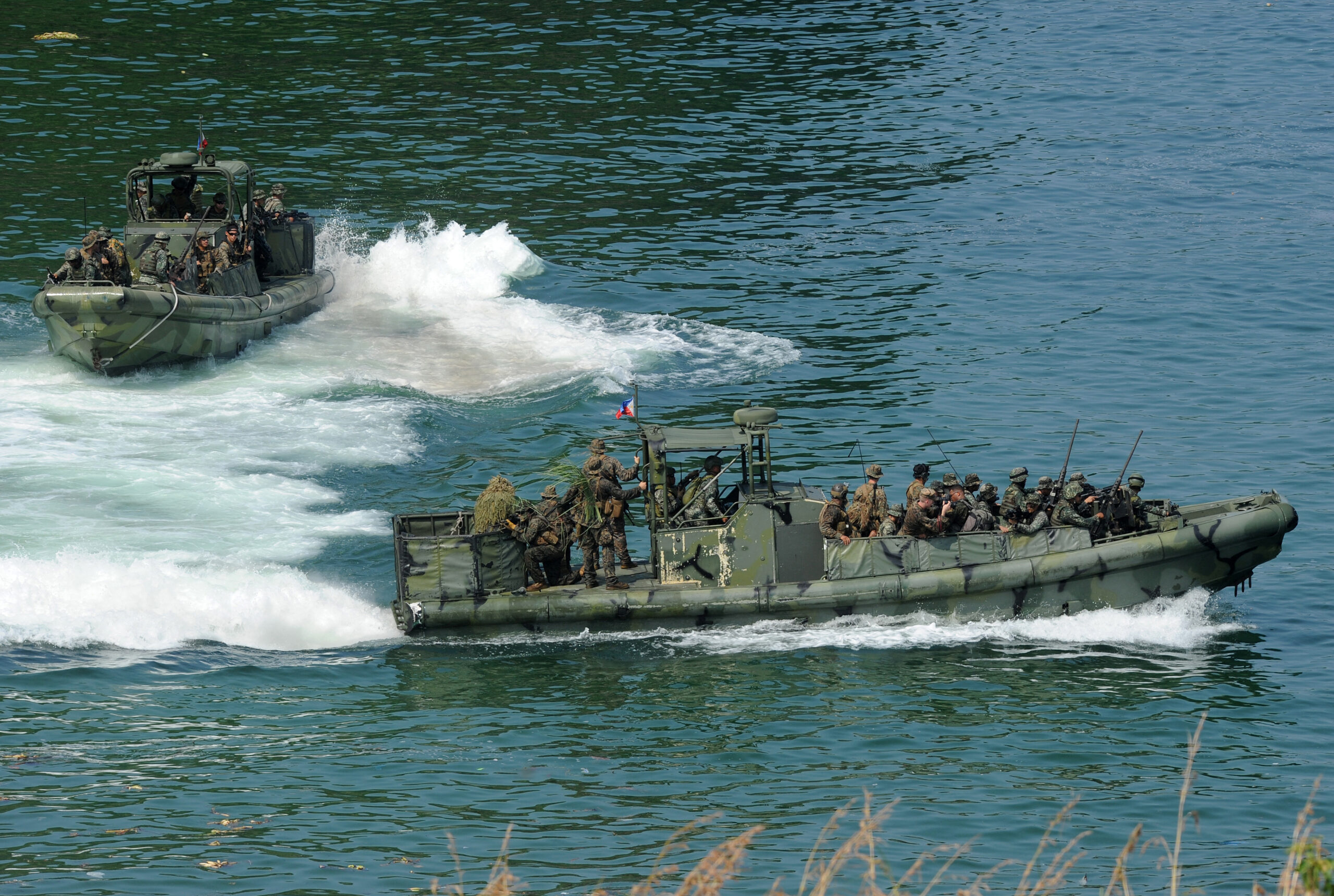West Philippine Sea: PH holds joint patrols with US, Canada, Australia

Philippine and US Marines aboard riverine patrol boats take position during a beach landing as part of their annual joint naval exercises at a marine base in Ternate, Cavite province, west of Manila on October 8, 2015. The Philippines in late August asked the US to provide military “assistance” in resupplying and rotating Manila’s forces in the South China Sea because they face harassment from regional power China, a military spokesman said . FILE PHOTO/Agence France-Presse
MANILA, Philippines — The Philippines launched on Wednesday two days of joint sea and air exercises with the United States, Canada and Australia, a joint statement said, as Beijing presses its territorial claim over the South China Sea.
The maneuvers will be held “within the Philippine Exclusive Economic Zone” and showcase “our collective commitment to strengthen regional and international cooperation in support of a free and open Indo-Pacific,” top military officials of the four nations said.
The exercises come as China’s saber-rattling towards Taiwan and over the South China Sea fuels fears of a potential conflict that could drag in the United States.
READ: Canada holds first joint patrol with PH, Japan, US in SCS
Beijing claims most of the strategic South China Sea, dismissing an international tribunal ruling that its claims were without basis.
Manila held separate naval exercises in the South China Sea last week, first with the United States and then, with Japan two days later.
A joint coast guard exercise is also scheduled off Manila Bay on Friday between the Philippines and Vietnam.
READ: Expect more joint patrols in South China Sea–US nat’l security adviser
The Philippines has a mutual defense treaty with the United States and signed a treaty with Japan last month that will allow the deployment of troops on each other’s territory.
The “multilateral maritime cooperative activity” will be the first as a group by the four nations and involve naval and air force units, a Filipino military spokesman told AFP.
“The naval and air force units of participating nations will operate together, enhancing cooperation and inter-operability between our armed forces,” said the joint statement, which did not name the participating vessels and military units.
“Australia, Canada, the Philippines and the United States uphold the right to freedom of navigation and overflight, other lawful uses of the sea and international airspace, as well as respect for maritime rights under international law, as reflected in the UN Convention on the Law of the Sea.”


















